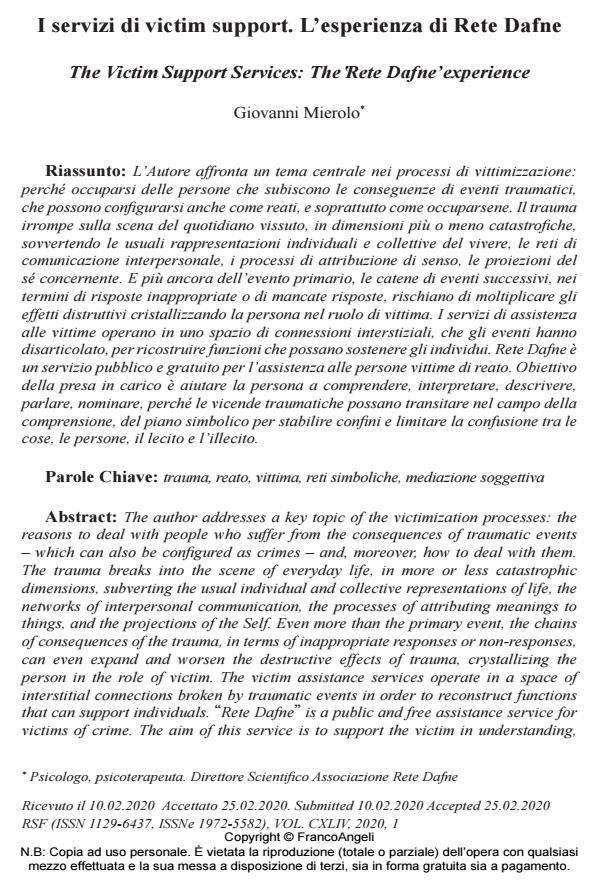The Victim Support Services: The ̔Rete Dafneʼexperience
Journal title RIVISTA SPERIMENTALE DI FRENIATRIA
Author/s Giovanni Mierolo
Publishing Year 2020 Issue 2020/1
Language Italian Pages 18 P. 101-118 File size 228 KB
DOI 10.3280/RSF2020-001008
DOI is like a bar code for intellectual property: to have more infomation
click here
Below, you can see the article first page
If you want to buy this article in PDF format, you can do it, following the instructions to buy download credits

FrancoAngeli is member of Publishers International Linking Association, Inc (PILA), a not-for-profit association which run the CrossRef service enabling links to and from online scholarly content.
The author addresses a key topic of the victimization processes: the reasons to deal with people who suffer from the consequences of traumatic events - which can also be configured as crimes - and, moreover, how to deal with them. The trauma breaks into the scene of everyday life, in more or less catastrophic dimensions, subverting the usual individual and collective representations of life, the networks of interpersonal communication, the processes of attributing meanings to things, and the projections of the Self. Even more than the primary event, the chains of consequences of the trauma, in terms of inappropriate responses or non-responses, can even expand and worsen the destructive effects of trauma, crystallizing the person in the role of victim. The victim assistance services operate in a space of interstitial connections broken by traumatic events in order to reconstruct functions that can support individuals. "Rete Dafne" is a public and free assistance service for victims of crime. The aim of this service is to support the victim in understanding, interpreting, describing, talking about and giving a name to the traumatic events. Therefore, traumatic events can pass through the field of understanding, and to the symbolic plan, in order to establish boundaries and reduce the confusion between things, people, the legal and the illegal.
Keywords: Trauma, crime, victim, symbolic networks, subjective mediation
Giovanni Mierolo, I servizi di victim support. L’esperienza di Rete Dafne in "RIVISTA SPERIMENTALE DI FRENIATRIA" 1/2020, pp 101-118, DOI: 10.3280/RSF2020-001008